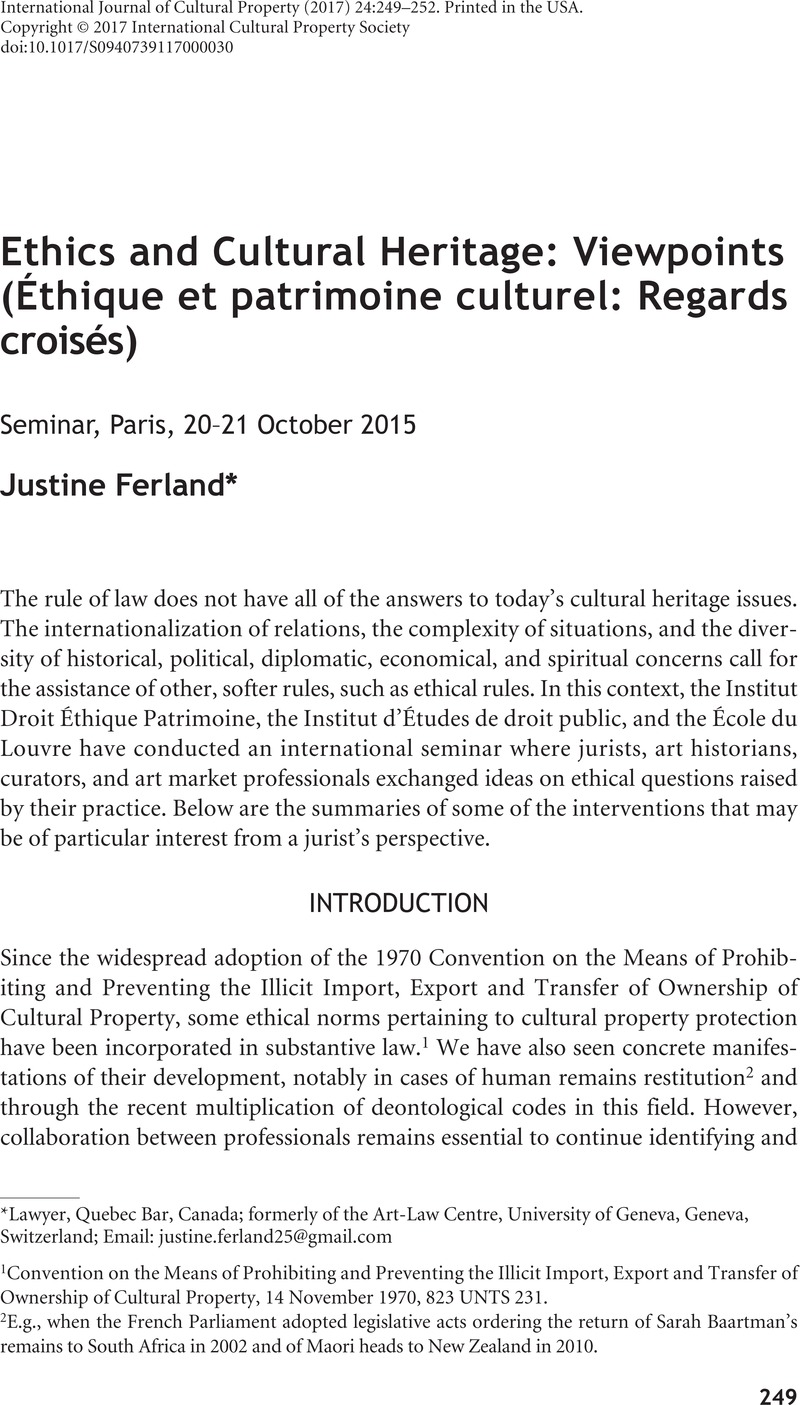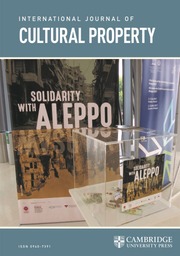No CrossRef data available.
Article contents
Ethics and Cultural Heritage: Viewpoints (Éthique et patrimoine culturel: Regards croisés)
Seminar, Paris, 20–21 October 2015
Published online by Cambridge University Press: 23 June 2017
Abstract

- Type
- Conference Report
- Information
- Copyright
- Copyright © International Cultural Property Society 2017
References
1 Convention on the Means of Prohibiting and Preventing the Illicit Import, Export and Transfer of Ownership of Cultural Property, 14 November 1970, 823 UNTS 231.
2 E.g., when the French Parliament adopted legislative acts ordering the return of Sarah Baartman’s remains to South Africa in 2002 and of Maori heads to New Zealand in 2010.
3 As illustrated notably by Greece’s arguments in its ongoing dispute with the British Museum concerning the Parthenon Marbles.
4 Notably when outsider art is marketed without the informed consent of its authors.
5 Convention for the Safeguarding of Intangible Cultural Heritage, 17 October 2003, 2368 UNTS 1 (2003 UNESCO Convention).
6 E.g., 2003 UNESCO Convention, Art. 2(3) defines “safeguarding” of intangible cultural heritage, but leaves open questions such as what is significant enough to be safeguarded, why it should be safeguarded and who should safeguard it. Moreover, Arts. 11(b) and 15 mention the need for participation of communities, groups, and individuals in safeguarding intangible cultural heritage without defining the nature of this participation.
7 France is notably considering open data options with the draft République Numérique law.
8 United Nations Declaration on the Rights of Indigenous Peoples, GA Res 61/295, UN GAOR, UN Doc A/RES/61/295 (13 September 2007).
9 See, e.g., the Inter-American Court of Human Rights’ decision in Moiwana Village v. Suriname, Inter-Am Ct HR, Series C, No 124 (15 June 2005).
10 As illustrated by the Rouen Museum’s restitution of a Maori head in 2007. Had it not been for the adoption of a special law allowing the restitution, the head would likely still be in France today due to the French Code du patrimoine’s dispositions on the inalienability of collections and the deaccession prohibition for donations.




